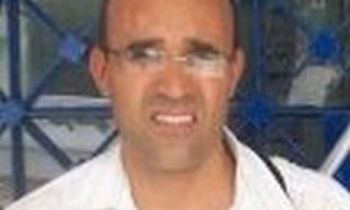As the newspaper industry grapples with its survival in the face of the steady attrition of readers and advertisers to the Internet, journalism schools have to be nimble, responding to the dynamic environment by offering courses featuring the latest technologies.
Columbia's Graduate School of Journalism -- a pioneer in teaching new media alongside the old -- recently took the bold step of calling the first international conference for representatives from journalism schools from around the globe, with the aim of examining the role of the academy in training future generations of reporters. More than 40 journalism educators from 13 different nations gathered at Columbia on May 24 and 25 for the event.
"For a variety of reasons -- increased political freedom, rapid technological advances, economic challenges and a sense that journalism simply needs to be more professional -- we seem to have arrived at a significant moment in journalism education," said journalism school dean Nicholas Lemann in his letter of invitation. "This is a propitious time for an international group of like-minded educators to gather, compare notes and discuss ways we might cooperate with each other," he added.
Hans-Henrik Holm, professor of international relations at the Danish School for Journalism, echoed Lemann's remarks at the symposium itself, noting that the push of technology and market imperatives have been setting a new agenda for European journalists. "We are moving from being information gatekeepers into a situation where the role of journalists needs to be redefined," he elaborated.
As participants began to compare the state of journalism in their respective parts of the world, it soon became clear that countries with a tradition of press freedom -- such as Denmark, Germany, the United Kingdom and the United States -- confront a very different set of issues than those that have yet to enjoy such freedoms, such as China, India and parts of South America. Educators in the former are facing such issues as the rapid shift to new media and the advent of the blogosphere, while their developing-world counterparts remain mired in the struggle to achieve press freedom and to establish a readership market robust enough to support quality journalism.
"Journalists struggled to figure out what their role would be during Latin America's 20-year transition to democracy," said Alma Guillermoprieto, a founding instructor at the Fundación Nuevo Periodismo Iberoamericano, based in Cartegena, Colombia, and a frequent contributor to the New York Review of Books and the New Yorker. "And after the transition, there is still the struggle of how to remain ethical when reporters often have to subsidize their salaries by working part-time as car salesmen, hot-dog stand operators or real-estate hustlers," she noted.
In the panels on curriculum and pedagogy, participants agreed that a key advantage of teaching journalism within the academy is that it helps to inculcate the value of skepticism in the face of authority in a way that on-the-ground journalistic experience may not.
As Antón Harber, a professor of journalism and media studies at the University of Witwatersrand in South Africa and the founder and editor for 12 years of the anti-apartheid newspaper The Weekly Mail, put it: "The primary role of a journalist is to make trouble, stir things up and provoke debate."
The conference concluded with a brainstorming session on how participants could continue to share cross-cultural perspectives once they return to their respective countries.
"The goal of setting a new global agenda for journalism education will not be easy to meet," commented Holm, "but a strong beginning was made here at Columbia."









